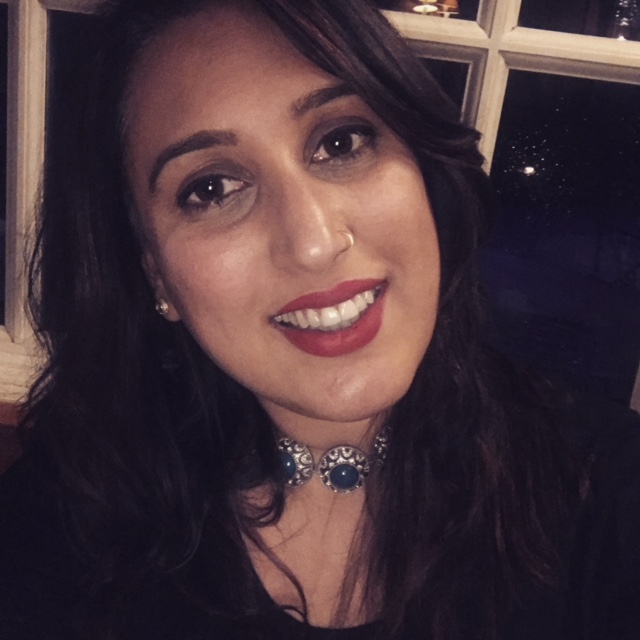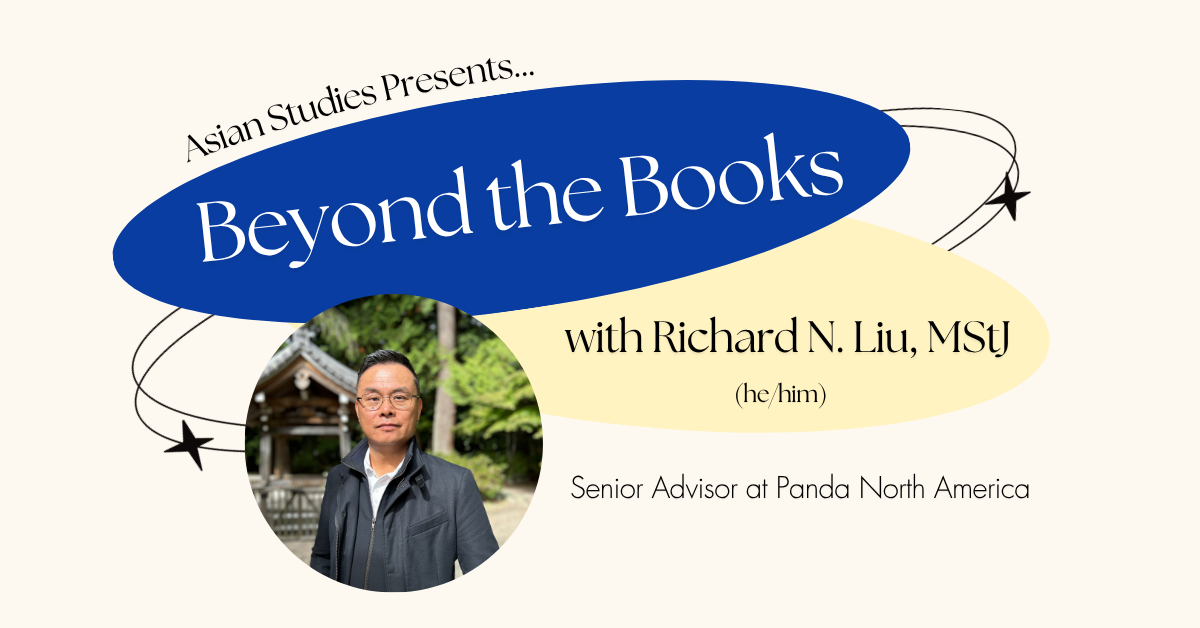Interested in pursuing an MA or PhD in Asian Studies? In this interview series, we ask our graduate students about their research, their experience in our program and their future academic and professional goals. This interview features Ph.D student Ranbir Johal. Ranbir’s research focuses on Punjabi Literature


Tell us a little about yourself, your background and what inspired your early interest in Punjabi literature?
I was born and raised in a Punjabi Canadian family in the Lower Mainland, growing up in Surrey in the 1980s and 90s. I was always interested in Punjabi language and culture, as I grew up speaking the language and reveling in the stories my mother would tell me, drawing from the pages of Punjabi history and folklore. I was also always drawn to performance, whether it be theatre, dance or music. In elementary school I would delight in directing my classmates in theatrical presentations of various stories and fairy tales. However, more often than not, my enjoyment in this areas was from the sidelines, as my father did not approve of females on the stage.
My father, who immigrated from the Punjab in 1973 was extremely strict when I was growing up. For example, he never permitted any of his three daughters, or his wife, to dance in public, even if it was a close family gathering. My sisters and I were not allowed to go to any our friend’s homes for birthday parties, playdates or sleepovers. In contrast, my brother, the youngest sibling, was granted all these privileges. Over the years, my father became more progressive in his treatment of his daughters, however my observations within the general Punjabi community indicated that many Punjabis still felt that females should face more restrictions from the public space, and that there was especially no space for them in performative areas.
In 1999 a Shastri IndoCanadian Language Training Fellowship gave me the opportunity to live in the Punjab for a year. Whilst there, I worked closely with individuals in Punjabi University’s Theatre Department and noticed that there was a dearth of females enrolled in this department and that the female students at the university were also subject to greater restrictions than males. For examples, the girls’ hostels all had curfews, whereas the boys could come and go freely from their hostels. When I discussed these issues with other students and faculty at the university I was surprised to see that the vast majority felt that these restrictions were important for the safety and honour of the female students. In addition, in the circles outside of the university, I saw that many people still held onto the idea that “respectable females” do not belong on the stage. These issues reignited my interest in the restriction of females from Punjabi performance traditions.
Could you explain to a non-expert what you are researching and why it is significant?
I am examining the contribution of women in the field of Punjabi theatre, focusing on four women who are seen as pillars in the area, and looking at the intersectionality of shame, honour, caste and class. In particular, I am examining the absence of women from the early days of Punjabi theatre and exploring why the aforementioned four women achieved accolades in this area when it had been restricted from women for so long. I argue that a primary reason for restriction of women from the public performative space is the connection of shame with non normative female roles, and that this experience of shame and the possibility of subverting it are constrained by class and caste distinctions.
Why did you choose the Asian Studies program at UBC?
I completed both my BA and MA from the Asian Studies program at UBC and was therefore familiar with the department’s strengths. In addition, I had met Dr. Anne Murphy previously and felt that her knowledge of the Punjab and Punjabi language, as well as her interest in Punjabi literature deemed her to be the best supervisor for my interests.
What are your career and academic goals? And how is our program helping you achieve them?
I have worked as a part time instructor of Punjabi language at Kwantlen Polytechnic University since 2005. Although I greatly enjoy teaching language, I was eager to delve further into the world of academia with my students, particularly in the areas of literature, gender and performance. My status as a PhD candidate has allowed me to now also join and teach in the Department of Asian Studies at KPU, as well as develop and teach further courses in folklore, Punjabi culture and performance in my current department of Language and Cultures.
I am also interested in creating an archive of interviews of females in the world of Punjabi theatre, as currently, there is scant information available on these females available in the Punjabi language and even less in English.
As a graduate student, what have been main activities and responsibilities?
In addition to my own research, I have also been a teaching assistant for two different Asian Studies courses, Punjabi language as well as Asian Folklore. In addition I taught a course on Punjabi Cinema in Spring 2018.
Has there been an aspect of your graduate experience that was unexpected?
I completed my first three degrees (BA ’97, MA ’01 and BEd ’02) when I was single. By the time I joined the PhD program in 2012, I was married with two young sons. I was unprepared for the difficulty in balancing my personal life and student life. In particular, the commute from Surrey to UBC, which I managed easily in my earlier years has been particularly challenging this time around. Whereas, in the past, I would return to Surrey from UBC after a long commute and eat a quick dinner before returning to my research; nowadays, I need to come home, pick up kids, take them to activities, do housework and prepare dinner. Usually, a few days will pass before I have a chance to return to my research again.
What has been your most impactful experience as a graduate student?
Without a doubt, the opportunity to travel to the Punjab and conduct field research. I was able to interview the aforementioned four female actresses/directors. The opportunity to record them and hear them tell their stories about their life and experiences was something that I will never forget.
Can you give any advice to new students in our program or for students considering applying to it?
The most important piece of advice I can offer is do not work alone. Try to meet and interact with as many individuals as possible on a daily basis, and if that is not possible then on a weekly or monthly basis (at the very least). The support, both emotional and academic, that you can receive from other students is invaluable.


